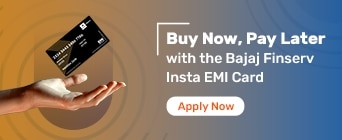Trying to decide whether to purchase the budget-friendly iPhone 12 or the newer iPhone 16 Pro? Looking at how these two models compare could help you understand which improvements are available and which new features and enhancements have been introduced.
Your decision depends on whether you prefer a familiar and reliable device or want the latest features packed into a premium design. Take a look at how the iPhone 12 vs iPhone 16 Pro compare across design, performance, and camera to help you make an informed choice.
If you are comparing the iPhone 12 vs iPhone 16 Pro, looking at their key specifications could help you decide which model suits your needs. While both devices deliver a smooth iOS experience, there might be noticeable differences in design materials, camera setup, and overall performance. Here's how the iPhone 16 Pro vs iPhone 12 differ in terms of core features:
Feature |
iPhone 12 |
iPhone 16 Pro |
Display |
6.1 inch, Super Retina XDR display. |
6.3 inch, Super Retina XDR display. |
Design |
Aluminium with glass back. |
Titanium with textured matte glass back. |
Main Camera |
12MP Main + 12MP ultra-wide. |
48MP Fusion + 48MP ultra-wide. |
Bionic Chip |
A14 Bionic chip. |
A18 Pro chip. |
Battery Life (Video playback) |
Up to 17 hours. |
Up to 27 hours. |
Operating System (Launched with) |
iOS 14. |
iOS 18. |
Your decision depends on whether you prefer the cutting-edge titanium design, advanced camera system, and longer battery life of the iPhone 16 Pro, or the simpler, well-balanced appeal of the iPhone 12.
In terms of design and build, both the iPhone 12 and iPhone 16 Pro carry Apple’s signature minimalist style. However, the materials used, notch design, and even colour choices might set them apart. If you are comparing comfort, durability, or visual appeal, these differences could help shape your decision. Here’s how the iPhone 12 vs iPhone 16 Pro stack up in their design aspects:
Design Aspect |
iPhone 12 |
iPhone 16 Pro |
Frame Material |
Aluminium. |
Titanium. |
Notch |
Traditional notch. |
Dynamic Island. |
Colours |
Blue, Purple, Green, White, etc. |
Desert, Black, White Natural. |
Water Resistance (IEC standard 60529) |
IP68, up to 6 m for 30 minutes. |
IP68, up to 6 m for 30 minutes. |
Weight |
Lighter, 162 grams. |
Heavier, 199 grams. |
The iPhone 16 Pro feels more premium with its titanium frame and Dynamic Island, offering a modern touch and refined finish. Its added weight might appeal to you if you associate it with durability. Meanwhile, the iPhone 12 could be ideal if you want a lighter phone with a timeless design and broader colour range that still holds popular appeal.
When comparing cameras on the iPhone 12 vs iPhone 16 Pro, the differences may hold more importance depending on how much you value quality photography. While both could handle everyday photos well, the iPhone 16 Pro’s upgraded system gives it an edge in versatility, detail, and creative control. Explore how the iPhone 16 Pro vs 12 match up in terms of camera features:
Camera Feature |
iPhone 12 |
iPhone 16 Pro |
Main Camera |
12MP, ƒ/1.6 aperture. |
48MP, ƒ/1.78 aperture. |
Ultra-Wide Camera |
12MP, ƒ/2.4 aperture. |
48MP, ƒ/2.2 aperture. |
Telephoto Camera |
Not available. |
12MP, ƒ/2.8 aperture. |
True Tone flash |
True Tone flash available with Slow Sync. |
Adaptive True Tone flash available. |
Photonic Engine and Latest Gen Photographic Styles |
Not available. |
Available. |
Portrait Mode |
Standard Depth Control. |
Advanced Focus and Depth Control. |
Zoom Range (Optical) |
.5x, 1x zoom. |
.5x, 1x, 2x, 5x zoom. |
Zoom Range (Digital) |
Up to 5x zoom. |
Up to 25x zoom. |
The iPhone 16 Pro might appeal to you with its triple-camera setup, higher resolution sensors, extended zoom range, and smarter features like the Photonic Engine and Adaptive True Tone flash. It may be ideal for you if you film often or want more photographic control. On the other hand, the iPhone 12 could still hold its ground with a simpler, easy-to-use camera system that works well for casual photography and daily use.
The iPhone 16 Pro’s newer A18 Pro chip offers better graphics and faster processing, while the battery improvements may appeal to heavy users. Here’s how the iPhone 12 vs 16 Pro stack up in terms of speed, storage, and battery endurance:
Specification |
iPhone 12 |
iPhone 16 Pro |
Chip and Core |
A14 Bionic Chip (6 core CPU, 4 core GPU and 16 core Neural Engine). |
A18 Pro Chip (6 core CPU, 6 core GPU and 16 core Neural Engine). |
Capacity (Mid-range) |
128GB. |
256GB. |
Video Playback |
Up to 17 hours. |
Up to 27 hours. |
Video (Streamed) |
Up to 11 hours. |
Up to 22 hours. |
Audio Playback |
Up to 65 hours. |
Up to 85 hours. |
Fast Charging |
Up to 50% in 30 minutes with a 20W adapter. |
Up to 50% in 30 minutes with a 20W adapter. |
Wireless Charging |
MagSafe, and Qi Charging. |
MagSafe, Qi2 and Qi Charging. |
Charging Port |
USB-C. |
USB-C. |
The iPhone 16 Pro's larger default storage could suit those with bigger app or media needs. It might also appeal to power users with its faster chip, higher GPU performance, and noticeably longer video playback time. Still, the iPhone 12 remains a good choice for everyday tasks, casual gaming, and reliable day-to-day use, especially if you prefer a lighter phone with solid fundamentals.
Both the iPhone 12 and iPhone 16 Pro run iOS and offer Apple’s trusted ecosystem, but the iPhone 16 Pro includes newer additions like Dynamic Island and satellite-based safety features that enhance convenience and peace of mind. Here's how the iPhone 12 vs iPhone 16 Pro compare when it comes to software and overall features:
Key Aspect |
iPhone 12 |
iPhone 16 Pro |
Dynamic Island |
Not available. |
Available. |
Face ID / Touch ID |
Face ID. |
Face ID. |
Crash Detection and Emergency SOS via Satellite |
Not available (supports standard Emergency SOS). |
Available (Supports Satellite SOS in supported regions). |
iOS Version (Launch) |
iOS 14. |
iOS 18. |
Software Longevity |
Could receive support, though for fewer years. |
Longer support may be expected. |
Exclusive Features |
Standard iOS features without enhancements. |
Advanced features like, Dynamic Island, Photonic Engine, Crash Detection, etc. |
The iPhone 16 Pro offers more advanced tools, including safety features and a fresh interface with Dynamic Island, which could appeal to you if you are looking for innovation and longevity. Meanwhile, the iPhone 12 continues to deliver a reliable and straightforward iOS experience, ideal if you prefer simplicity without missing out on core Apple services. Your choice between iPhone 12 vs 16 Pro depends on how much you value the newest enhancements versus a tried-and-tested experience.
When comparing the iPhone 12 vs 16 Pro, price plays a crucial role in your decision. The iPhone 12 may cost between ₹30,000 to ₹50,000, based on the offers and availability of the model. It could be a solid choice if you are looking for a budget-friendly iPhone with a trusted performance.
The iPhone 16 Pro, on the other hand, usually ranges from ₹1,20,000 to ₹1,70,000, based on the storage variant you opt for. The higher price reflects its titanium build, advanced camera system, A18 Pro chip, and new features like Dynamic Island and emergency SOS.
If you are after a capable iPhone without wanting to spend too much, the iPhone 12 still does the job well. But if you want a higher-end performance and future-ready features, the iPhone 16 Pro could justify the extra spend.
The iPhone 16 Pro may appeal to you if you want a higher performance, a premium titanium design, advanced camera features, and newer additions like Dynamic Island and Crash Detection. The iPhone 16 Pro also offers better long-term value with longer software support and higher storage options.
Meanwhile, the iPhone 12 might be a smart pick if you want a reliable iPhone that covers all the basics without breaking the bank. It offers an OLED display, smooth performance with the A14 Bionic chip, and access to the Apple ecosystem, all at a much lower price point.
If you need a powerful, future-ready iPhone and are willing to invest more, the iPhone 16 Pro could be a suitable choice. But if you are after an affordable and dependable model, then the iPhone 12 might fit your needs better.
Once you have picked between the iPhone 12 and the iPhone 16 Pro, the Bajaj Finserv Insta EMI Card could simplify your payment process by letting you skip the full upfront cost. Here’s what makes it helpful:
Convert your total purchase into manageable monthly instalments
Enjoy zero down payment offers at select retailers
No need for a credit card or lengthy approval steps
Choose a repayment tenure that aligns with your budget
Instantly use your pre-approved limit at both, online and physical stores
Whether you go for the value-packed iPhone 12 or invest in the high-end iPhone 16 Pro, this card might offer you flexibility and potentially ease the pressure of paying all at once.
Related to Bajaj Finserv EMI Network Card
- EMI Card
- Bajaj Finserv EMI Network Card Login
- Bajaj Customer Portal
- Apply for Bajaj Finserv Insta EMI Card
- Eligibility For Bajaj Finserv EMI Network Card
- Bajaj Finserv EMI Network Card Benefits
- Bajaj Finserv EMI Network Card Charges
- Bajaj Finserv EMI Network Card Offers
- Bajaj Finserv Partner Stores
- No Cost EMI
- EMI Without Credit Card
- EMI Card VS Credit Card
- Bajaj Finserv EMI Network Card Accepted Shops
- Check EMI Network Card Details
- Bajaj Finserv EMI Network Card Statement
- Bajaj Finserv EMI Network Card Cash Withdrawals
- Bajaj Finserv EMI Network Card Limit
- Bajaj Finserv EMI Network Card Status
- EMI Network Card FAQs
- Unblock EMI Network Card
- Interest on EMI Network Card
Manage your EMI Network Card
- How to Activate Bajaj Finserv EMI Network Card?
- How to Increase Bajaj Finserv EMI Network Card Limit?
- How to Use Bajaj Finserv EMI Network Card?
- How to get Bajaj Finserv EMI Network Card number?
- How to Check EMI Network Card Balance?
- How to Change the Bajaj Finserv EMI Network Card Pin?
- How to Get the Bajaj Finserv EMI Network Card Pin?
- How to Change the Registered Bajaj Finserv EMI Network Card Phone Number?
- How to Check the Bajaj Finserv EMI Network Card CVV Online?
- How Does No Cost EMI Work?
- No Cost EMI at Amazon
- No Cost EMI At @Home
- No Cost EMI at Flipkart
- No Cost EMI Goibibo
- No Cost EMI at Hometown
- No Cost EMI at MMT
- No Cost EMI at Xiaomi
- No Cost EMI at Oneplus
- No Cost EMI at Oppo
- No Cost EMI at PayTm
- No Cost EMI at Pepperfry
- No Cost EMI at Realme
- No Cost EMI at Samsung
- No Cost EMI at Vivo
- No Cost EMI at Yatra
Shop for products on EMI
- Laptops on EMI
- Mobile on EMI
- iPhone on EMI
- AC on EMI
- Cycle on EMI
- Furniture on EMI
- HP Laptop on EMI
- iPhone 13 on EMI
- TV on EMI
- Dell Laptop on EMI
- Inverter on EMI
- Washing Machine on EMI
- Camera on EMI
- Flight Tickets on EMI
- Computer on EMI
- iPad on EMI
- Electronics on EMI
- Macbook on EMI
- Refrigerator on EMI
- Modular Kitchen on EMI
- Printer on EMI
- Sofa on EMI
- Travel on EMI
- Macbook Air on EMI
- Tour Packages on EMI
- Tyre on EMI
- Apple Watch on EMI
- Iphone XR on EMI
Frequently Asked Questions
What is the major difference between iPhone 12 and iPhone 16 Pro?
The iPhone 16 Pro offers a titanium design, a ProMotion display, triple 48MP camera system, and the powerful A18 Pro chip, whereas the iPhone 12 features an aluminium body, a simpler dual camera setup, and an A14 Bionic chip efficient enough for daily needs.
Is iPhone 16 Pro worth more than the iPhone 12?
Yes, the iPhone 16 Pro costs significantly more due to its premium materials, advanced camera features, improved performance, and newer technology like Dynamic Island and Crash Detection.
Is the iPhone 16 Pro's battery life significantly better than the iPhone 12?
Yes, the iPhone 16 Pro offers up to 27 hours of video playback compared to the iPhone 12’s 17 hours, making it a better choice if longer battery life is important to you.
How does the display quality of the iPhone 16 Pro compare to the iPhone 12?
Both have Super Retina XDR displays, but the iPhone 16 Pro adds ProMotion for smoother visuals and a slightly larger 6.3-inch screen compared to the 6.1-inch display on the iPhone 12.
Are there any new features in the iPhone 16 Pro not available in the iPhone 12?
Yes, the iPhone 16 Pro includes newer features like Dynamic Island, Photonic Engine, Adaptive True Tone flash, and Emergency SOS via satellite, which are not present in the iPhone 12.
Is the iPhone 16 Pro worth the upgrade from the iPhone 12?
If you value better performance, camera quality, and newer features, the iPhone 16 Pro could be a worthwhile upgrade. However if you are satisfied with essential performance and want to save money, the iPhone 12 may still serve you well.






